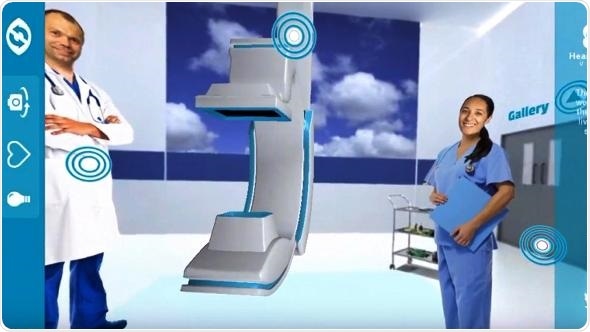An augmented reality project, created by a Manchester start-up is being used in hospitals to help with heart problems.

Digital Pop-Ups designed the Heart Valve AR experience for Heart Valve Voice, an organization responsible for creating awareness of deadly heart valve disease.
Launched in September, the AR 360 gyro experience is now going out to hospitals so that patients can visit a Cath Lab from their phone or tablet.
Digital Pop-Ups was founded last year by Milenne Tanganelli, using a £15k start up loan from GC Business Finance.
“Having worked in digital media for over a decade, I’ve developed a real passion for AR and the opportunity to create dynamic and precise content for clients,” she explained.
“Many people will associate VR and AR with gaming and leisure, but Digital Pop-Ups is taking its benefits much further, enabling businesses and service providers to explore AR as a more relevant and immediate level of communication that has enormous potential to engage audiences in new and exciting ways.”
GC Business Finance is the finance arm of The Growth Company and supported by the GM Combined Authority and Greater Manchester Local Enterprise Partnership.
Milenne came to us with an impeccable track record in digital development and a real passion to put her experience to use for a purpose. In an age of information overload, it has never been more important to create messaging that can really cut through that noise and educate people, something that Digital Pop-Ups puts at the heart of their business development.”
Chris Hutchison, head of lending at GC Business Finance
Heart Valve Awareness Day AR